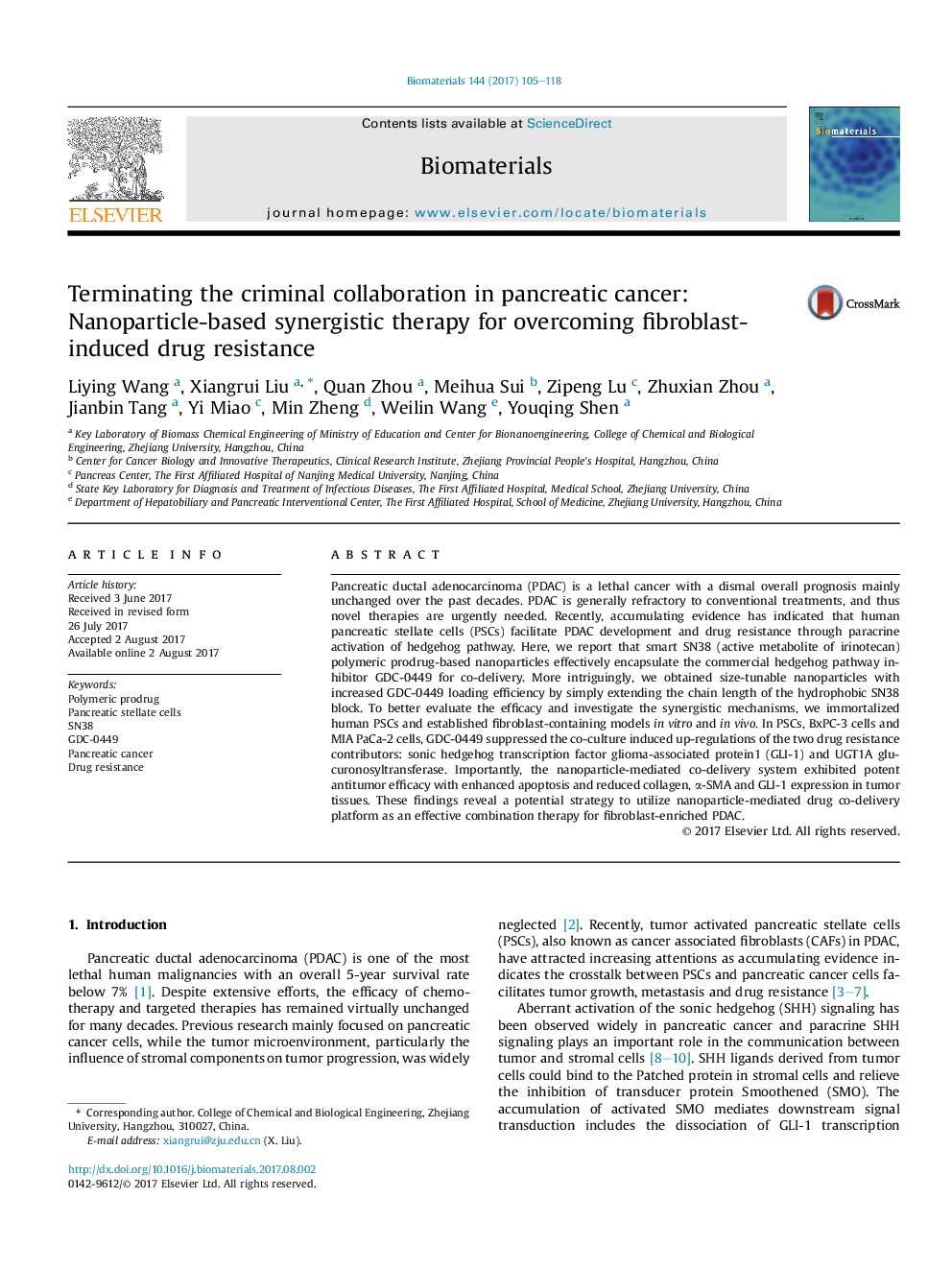| Article ID | Journal | Published Year | Pages | File Type |
|---|---|---|---|---|
| 4752257 | Biomaterials | 2017 | 14 Pages |
Pancreatic ductal adenocarcinoma (PDAC) is a lethal cancer with a dismal overall prognosis mainly unchanged over the past decades. PDAC is generally refractory to conventional treatments, and thus novel therapies are urgently needed. Recently, accumulating evidence has indicated that human pancreatic stellate cells (PSCs) facilitate PDAC development and drug resistance through paracrine activation of hedgehog pathway. Here, we report that smart SN38 (active metabolite of irinotecan) polymeric prodrug-based nanoparticles effectively encapsulate the commercial hedgehog pathway inhibitor GDC-0449 for co-delivery. More intriguingly, we obtained size-tunable nanoparticles with increased GDC-0449 loading efficiency by simply extending the chain length of the hydrophobic SN38 block. To better evaluate the efficacy and investigate the synergistic mechanisms, we immortalized human PSCs and established fibroblast-containing models in vitro and in vivo. In PSCs, BxPC-3 cells and MIA PaCa-2 cells, GDC-0449 suppressed the co-culture induced up-regulations of the two drug resistance contributors: sonic hedgehog transcription factor glioma-associated protein1 (GLI-1) and UGT1A glucuronosyltransferase. Importantly, the nanoparticle-mediated co-delivery system exhibited potent antitumor efficacy with enhanced apoptosis and reduced collagen, α-SMA and GLI-1 expression in tumor tissues. These findings reveal a potential strategy to utilize nanoparticle-mediated drug co-delivery platform as an effective combination therapy for fibroblast-enriched PDAC.
